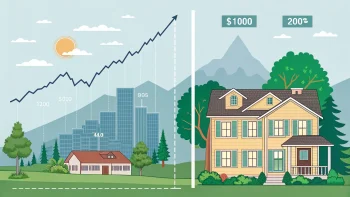Financial success doesn’t always look the way we expect it to. Take a moment to observe the financial landscape and listen to experts like Steve Chen, founder of CALLTOLEAP. I’ve come to realize that many of us are doing better than we think—we’re just measuring success by the wrong metrics.
In a recent talk, Chen highlighted two critical indicators that you’re on the right financial path, even when it doesn’t feel that way. These insights resonated deeply because they challenge the conventional wisdom about what it means to be “doing well” financially.
Building True Wealth vs. Displaying Status
The first sign Chen points out is that you’re focused on building true wealth rather than displaying status symbols. This distinction is crucial but often overlooked in our status-obsessed culture.
Wealth is largely invisible—it’s measured by what you don’t see rather than what you do see. While society judges financial success by visible markers like luxury cars, designer clothes, and sprawling homes, these items often reflect consumption rather than wealth.
“The world will judge you on the things you have, like the size of your house, the car you drive, or the clothes that you wear. But the truth is, most of Americans barely have enough to cover everything they need for a one month emergency.” Steve Chen
This reality check from Chen is sobering. When he notes that most Americans would go into debt within thirty days of losing their job, it puts into perspective how precarious many seemingly “successful” lifestyles actually are.
This disconnect between appearance and reality creates tremendous pressure. We’re constantly bombarded with images of luxury that suggest “this is what success looks like,” when in fact many of the people projecting these images are financially vulnerable.
View this post on Instagram
Breaking Free from Harmful Comparisons
The second sign of financial health Chen identifies is not comparing yourself to the wrong people. This point struck me as particularly insightful because comparison is such a natural human tendency—yet it can be incredibly destructive to our financial wellbeing.
Chen references studies showing how our satisfaction with our income is relative to what others around us make:
- If you earn $60,000 while your friend makes $70,000, you’ll likely feel dissatisfied
- If you earn that same $60,000 while your friend makes $50,000, you’ll probably feel good about your situation
The problem with this comparison mindset is that it creates an endless cycle of dissatisfaction. There will always be someone earning more, driving a nicer car, or living in a bigger house.
Your financial journey is uniquely yours—comparing it to others’ journeys is not only pointless but actively harmful to your financial and mental health.
Redefining Financial Success
What I find most valuable about Chen’s perspective is how it reframes what financial success actually means. It’s not about keeping up with the Joneses—it’s about building security, options, and peace of mind.
True financial health might look like:
- Having a robust emergency fund that can sustain you through job loss or unexpected expenses
- Consistently investing for long-term growth rather than spending on status symbols
- Making financial decisions based on your values and goals, not social pressure
- Feeling secure in your financial trajectory, regardless of what others are doing
I’ve come to believe that financial wellness is more about how you sleep at night than what you drive during the day. It’s about creating stability and options for yourself rather than impressing others.
Chen’s background as a former public school teacher who now helps thousands build wealth gives his perspective particular weight. He understands both the practical realities of living on a modest income and the principles that allow people to create genuine financial security.
So if you’re doing these two things—focusing on building actual wealth and avoiding the comparison trap—take heart. You may be doing much better financially than you realize, even if you don’t have all the trappings our consumer culture associates with success.
Your financial journey isn’t a race against others—it’s a personal marathon with your own finish line. And sometimes, the people who appear to be winning are actually falling behind where it truly counts.
Image Credit: Photo by itay verchik: Pexels
















